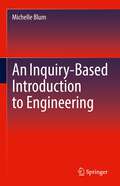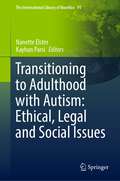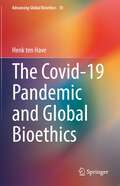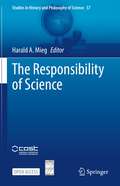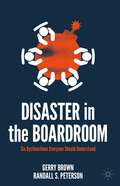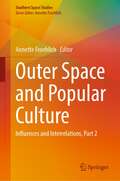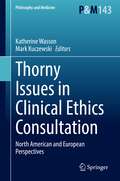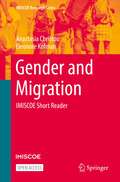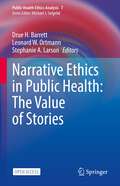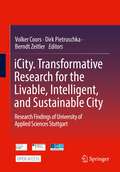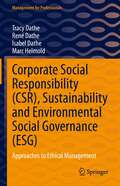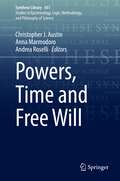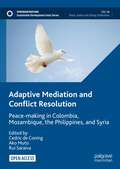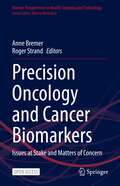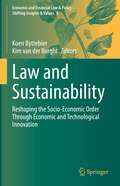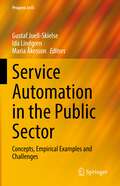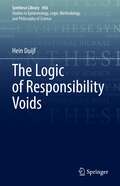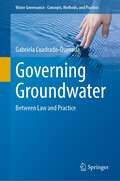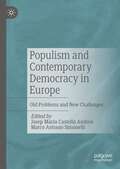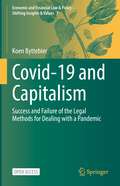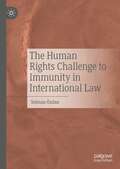- Table View
- List View
An Inquiry-Based Introduction to Engineering
by Michelle BlumThe text introduces engineering to first-year undergraduate students using Inquiry-Based Learning (IBL). It draws on several different inquiry-based instruction types such as confirmation inquiry, structured inquiry, guided inquiry, and open inquiry, and all of their common elements. Professor Blum’s approach emphasizes the student’s role in the learning process, empowering them in the classroom to explore the material, ask questions, and share ideas, instead of the instructor lecturing to passive learners about what they need to know. Beginning with a preface to IBL, the book is organized into three parts, each consisting of four to ten chapters. Each chapter has a dedicated topic where an initial few paragraphs of introductory or fundamental material are provided. This is followed by a series of focused questions that guide the students’ learning about the concept(s) being taught. Featuring multiple inquiry-based strategies, each most appropriate to the topic, An Inquiry-Based Approach to Introduction to Engineering stands as an easy to use textbook that quickly allows students to actively engage with the content during every class period.
Transitioning to Adulthood with Autism: Ethical, Legal and Social Issues (The International Library of Bioethics #91)
by Nanette Elster Kayhan ParsiThis book offers the first ever book-length treatment of the topic of transitioning from adolescence to adulthood with autism and the attendant ethical, legal and social issues for the individual as well as caregivers and professionals. It features experts in a variety of areas (law, bioethics, philosophy, pediatrics, neurology, medicine, psychology, special education, social work, employment, civic participation, social media) who provide commentary on these areas and the relevant ethical/legal/social challenges young autistic adults face in these different areas. This is an indispensable read for educators, therapists, and other professionals who work in transition with young autistic adults.
The Covid-19 Pandemic and Global Bioethics (Advancing Global Bioethics #18)
by Henk ten HaveThis book demonstrates that the COVID 19 pandemic asks for a a global approach to bioethics. it describes how the pandemic affects the experience of being in a world that is intrinsically characterized by global connectivity. It demonstrates that a moral vision is necessary to articulate this experience of connectedness. Subsequently, a perspective of global bioethics is introduced, which provides a broader framework than mainstream bioethics, since it highlights the significance of both vulnerability and solidarity. Through a unique global perspective the book addresses the moral challenges of the pandemic, and places the confrontation with death, disease and disability within a wider framework of ethical concerns. This book is of important in the public debate on infectious diseases, and of relevance to health professionals, global health educators, public health experts,as well as policy makers.
The Palgrave Handbook of Natural Gas and Global Energy Transitions
by Damilola S. Olawuyi Eduardo G. PereiraThe Palgrave Handbook of Natural Gas and Global Energy Transitions provides an in-depth and authoritative examination of the transformative implications of the ongoing global energy transitions for natural gas markets across the world.With case studies from Africa, Asia, Europe, North America, Latin America, South America, Australia, and the Middle East, the volume introduces readers to the latest legal, policy, technological, and fiscal innovations in natural gas markets in response to ongoing global energy transitions. It outlines the risk mitigation strategies and contractual techniques — focusing on resilience planning, low-carbon business models, green procurement, climate-smart infrastructure development, accountability, gender justice, and other sustainability safeguards — that are required to maximize the full value of natural gas as a catalyst for a just and equitable energy transition and for energy security across the world.Written in an accessible style, this book outlines the guiding principles for a responsible and low-carbon approach to the design, financing, and implementation of natural gas development and commercialization. It is an indispensable text and reference work for students, scholars, practitioners, and stakeholders in natural gas, energy, infrastructure, and environmental investments and projects.
The Responsibility of Science (Studies in History and Philosophy of Science #57)
by Harald A. MiegThis open access book provides an overview of issues of scientific responsibility. The volume comprises three types of contributions: first, analyses of the responsibility of science; second, analyses of the structural conditions for science and its responsibility; and third, normative versions of scientific responsibility. The questions and problems dealt with include science as a profession, ambivalence of research and dual-use, innovation vs. precaution, notions of responsibility, the role of science within society and its relation to human rights, as well as scientific and public discourses. The book addresses scholars in the fields of Science Studies and Research Policy.This is an open access book.
Disaster in the Boardroom: Six Dysfunctions Everyone Should Understand
by Gerry Brown Randall S. PetersonWhy when companies come crashing down, do we hear of boards who have failed in their fiduciary duties? Or that they have been ignorant, complacent or downright complicit in these scandals and downfalls? Of course, corporate scandals are nothing new, nor are they limited to any one geography. They are a damning indictment of our systems of corporate governance around the world. And yet, despite this frequency, little or nothing changes. We shrug and move on, accepting they are an unavoidable part of the system that produces incredible wealth for economies and societies. But it should not be that way. Disaster in the Boardroom shows how boards can be better. Looking at why these scandals happen, authors Peterson and Brown present in-depth case studies of major global corporations – including recent contemporary scandals associated with companies such as BP, Facebook and Uber – using the optic of their unique, original and compelling ‘six dysfunctions of the board’ analysis to reveal their particularities but also how they can be overcome. In this book, Brown and Peterson explore common attributes of scandals such as lack of independence from management, missing key voices, cultural amplification, diffusion of responsibility, rule-bound cultures and groupthink. They also identify ways to strengthen boards, improve their culture and competence, and give directors and others the power to take action and ultimately prevent disasters from happening. Disaster in the Boardroom is essential reading for every executive in every boardroom, those aspiring to board positions as well as anyone interested in why boards fail. It has never been more important to pre-identify and eradicate these boardroom dysfunctions – not least so that their impacts upon society can better seen, understood, mitigated, and avoided.
The Handbook of Security
by Martin GillThe substantially revised third edition of The Handbook of Security provides the most comprehensive analysis of scholarly security debates and issues to date. It reflects the developments in security technology, the convergence of the cyber and security worlds, and the fact that security management has become even more business focused. It covers newer topics like terrorism, violence, and cybercrime through various offence types such as commercial robbery and bribery. This handbook comprises mostly brand new chapters and a few thoroughly revised chapters, with discussions of the impact of the pandemic. It includes contributions from some of the world's leading scholars from an even broader geographic scale to critique the way security is provided and managed. It speaks to professionals working in security and students studying security-related courses.
Outer Space and Popular Culture: Influences and Interrelations, Part 2 (Southern Space Studies)
by Annette FroehlichFollowing on from Part 1, which was highly acclaimed by the space community, this peer-viewed book provides detailed insights into how space and popular culture intersect across a broad spectrum of areas, including cinema, music, art, arcade games, cartoons, comics, and advertisements. This is a pertinent topic since the use of space themes differs in different cultural contexts, and these themes can be used to explore various aspects of the human condition and provide a context for social commentary on politically sensitive issues. With the use of space imagery evolving over the past sixty years of the space age, this topic is ripe for in-depth exploration. Covering a wide array of relevant and timely topics, the book examines the intersections between space and popular culture, and offers accounts of space and its effect on culture, language, and storytelling from the southern regions of the world.
Evil in the Modern World: International and Interdisciplinary Perspectives
by Laura Dryjanska Giorgio PacificiThis interesting volume focuses on a set of phenomena which increasingly alarm the political world and public opinion: from the more obvious ones like torture, disease, human trafficking, abuse, genocide, displacement, to more subtle forms found in sports, technology and law. It looks at how and why these phenomena are universally condemned, and could be considered to threaten the very foundations of modern democracy; yet continue to be tolerated. The volume therefore goes beyond what Hannah Arendt has called the "banality of evil" and discusses the presence of condemned and heinous practices in society as fluid and chaotic but as non-trivial; capable of great transmutations through various epochs. Practices and actions considered as "evil" manifest in situations where individuals or groups hold power or seize power, and the contributions in this volume explore the close relation between power and evil. The volume draws upon sociology, psychology, cultural studies, political science, as well as philosophy, theology, anthropology, and neurology of the individual and of the group to provide a comprehensive understanding of the multiple facets of evil in the contemporary world.
Thorny Issues in Clinical Ethics Consultation: North American and European Perspectives (Philosophy and Medicine #143)
by Katherine Wasson Mark KuczewskiThis book addresses new and evolving thorny issues in clinical ethics consultation. It is a book for our time. The contributors provide essential critical reflection on the standards and methods of training clinical ethics consultants as the field seeks to professionalize. This collection incorporates both North American and European experts, offering different perspectives on issues such as marginalized populations, the opioid epidemic, complex discharge, micro-managing families, and continually challenging issues at the end-of-life, such as determinations of brain death, physician-assisted death, and futility. The authors engage the complexities of choosing for others when making decisions for incapacitated adults and pediatric patients. This volume engages with the growing literature in these debates and offers new perspectives from both academics and practitioners. The readings are of particular interest to bioethicists, clinicians, ethics committees, and students in bioethics and beyond. These new essays advance discussions in the professionalization and certification of ethics consultants and offer crucial insights on new and evolving thorny issues in the practice of clinical ethics consultation.
Gender and Migration: IMISCOE Short Reader (IMISCOE Research Series)
by Eleonore Kofman Anastasia ChristouThis open access short reader offers a critical review of the debates on the transformation of migration and gendered mobilities primarily in Europe, though also engaging in wider theoretical insights. Building on empirical case studies and grounded in an analytical framework that incorporates both men and women, masculinities, sexualities and wider intersectional insights, this reader provides an accessible overview of conceptual developments and methodological shifts and their implications for a gendered understanding of migration in the past 30 years. It explores different and emerging approaches in major areas, such as: gendered labour markets across diverse sectors beyond domestic and care work to include skilled sectors of social reproduction; the significance of families in migration and transnational families; displacement, asylum and refugees and the incorporation of gender and sexuality in asylum determination; academic critiques and gendered discourses concerning integration often with the focus on Muslim women. The reader concludes with considerations of the potential impact of three notable developments on gendered migrations and mobilities: Black Lives Matter, Brexit and COVID-19. As such, it is a valuable resource for students, academics, policy makers, and practitioners.
Narrative Ethics in Public Health: The Value of Stories (Public Health Ethics Analysis #7)
by Drue H. Barrett Leonard W. Ortmann Stephanie A. LarsonThis Open Access book illustrates the power of stories to illuminate ethical concerns that arise in public health. It complements epidemiological or surveillance evidence, and reveals stakeholder perspectives crucial for public health practitioners to develop effective and ethical public health interventions. Because it relies on the natural and universal appeal of stories, the book also serves to introduce the field of public health to students considering a career in public health. The opening section of the book also serves as a more didactic introduction to public health ethics and the field of narrative ethics. It describes the field of public health ethics including ethical principles relevant to public health practice and research, and the advantages of a narrative ethics approach. That approach explores the problems and the ethical challenges of public health from the inside, from the perspective of those experiencing health problems to the challenges of those who must address these problems. The later sections consist of 14 chapters that present the actual stories of these public health problems and challenges. In narrative style they range from first person narratives of both practitioners and citizens, to analysis of published short stories. The problems and challenges they address include issues relating to justice concerns, surveillance and stigma, community values and the value of community, trust and the value of information, and freedom and responsibility. Specific public health topics include resource allocation, restricting liberty to protect the community from health threats, and the health impact of trauma, addiction, obesity and health disparities.
iCity. Transformative Research for the Livable, Intelligent, and Sustainable City: Research Findings of University of Applied Sciences Stuttgart
by Volker Coors Dirk Pietruschka Berndt ZeitlerThis open access book presents the exciting research results of the BMBF funded project iCity carried out at University of Applied Science Stuttgart to help cities to become more liveable, intelligent and sustainable, to become a LIScity. The research has been pursued with industry partners and NGOs from 2017 to 2020. A LIScity is increasingly digitally networked, uses resources efficiently, and implements intelligent mobility concepts. It guarantees the supply of its grid-bound infrastructure with a high proportion of renewable energy. Intelligent cities are increasingly human-centered, integrative, and flexible, thus placing the well-being of the citizens at the center of developments to increase the quality of life. The articles in this book cover research aimed to meet these criteria. The book covers research in the fields of energy (i.e. algorithms for heating and energy storage systems, simulation programs for thermal local heating supply, runtime optimization of combined heat and power (CHP), natural ventilation), mobility (i.e. charging distribution and deep learning, innovative emission-friendly mobility, routing apps, zero-emission urban logistics, augmented reality, artificial intelligence for individual route planning, mobility behavior), information platforms (i.e. 3DCity models in city planning: sunny places visualization, augmented reality for windy cities, internet of things (IoT) monitoring to visualize device performance, storing and visualizing dynamic energy data of smart cities), and buildings and city planning (i.e. sound insulation of sustainable facades and balconies, multi-camera mobile systems for inspection of tunnels, building-integrated photovoltaics (BIPV) as active façade elements, common space, the building envelopes potential in smart sustainable cities).
Dao Companion to the Philosophy of the Zhuangzi (Dao Companions to Chinese Philosophy #16)
by Kim-Chong ChongThis comprehensive collection brings out the rich and deep philosophical resources of the Zhuangzi. It covers textual, linguistic, hermeneutical, ethical, social/political and philosophical issues, with the latter including epistemological, metaphysical, phenomenological and cross-cultural (Chinese and Western) aspects. The volume starts out with the textual history of the Zhuangzi, and then examines how language is used in the text. It explores this unique characteristic of the Zhuangzi, in terms of its metaphorical forms, its use of humour in deriding and parodying the Confucians, and paradoxically making Confucius the spokesman for Zhuangzi’s own point of view. The volume discusses questions such as: Why does Zhuangzi use language in this way, and how does it work? Why does he not use straightforward propositional language? Why is language said to be inadequate to capture the “dao” and what is the nature of this dao? The volume puts Zhuangzi in the philosophical context of his times, and discusses how he relates to other philosophers such as Laozi, Xunzi, and the Logicians.
Corporate Social Responsibility: Approaches to Ethical Management (Management for Professionals)
by Marc Helmold Tracy Dathe René Dathe Isabel DatheThis book provides a comprehensive overview of corporate social responsibility (CSR) and its practical applications. In addition to the structured procedure with definitions and CSR approaches, functions within the value chain are described in comprehensive manner with reference to business practice. Business trends in special sectors such as innovation management and hospitality management are also covered. Numerous practical examples and country-specific recommendations for decisions in practical situations are also offered.
Powers, Time and Free Will (Synthese Library #451)
by Anna Marmodoro Christopher J. Austin Andrea RoselliThis book brings together twelve original contributions by leading scholars on the much-debated issues of what is free will and how can we exercise it in a world governed by laws of nature. Which conception of laws of nature best fits with how we conceive of free will? And which constraints does our conception of the laws of nature place on how we think of free will? The metaphysics of causation and the metaphysics of dispositions are also explored in this edited volume, in relation to whether they may or may not be game-changers in how we think about both free will and the laws of nature. The volume presents the views of a range of international experts on these issues, and aims at providing the reader with novel approaches to a core problem in philosophy. The target audience is composed by academics and scholars who are interested in an original and contemporary approach to these long-debated issues.Chapters [2] and [4] are available open access under a Creative Commons Attribution 4.0 International License via link.springer.com.
Adaptive Mediation and Conflict Resolution: Peace-making in Colombia, Mozambique, the Philippines, and Syria (Sustainable Development Goals Series)
by Cedric De Coning Ako Muto Rui SaraivaThis open access book introduces adaptive mediation as an alternative approach that enables mediators to go beyond liberal peace mediation, or other determined-design models of mediation, in the context of contemporary conflict resolution and peace-making initiatives. Adaptive mediation is grounded in complexity theory, and is specifically designed to cope with highly dynamic conflict situations characterized by uncertainty and a lack of predictability. It is also a facilitated mediation process whereby the content of agreements emerges from the parties to the conflict themselves, informed by the context within which the conflict is situated. This book presents the core principles and practices of adaptive mediation in conjunction with empirical evidence from four diverse case studies – Colombia, Mozambique, The Philippines, and Syria – with a view to generate recommendations for how mediators can apply adaptive mediation approaches to resolve and transform contemporary and future armed conflicts.
Precision Oncology and Cancer Biomarkers: Issues at Stake and Matters of Concern (Human Perspectives in Health Sciences and Technology #5)
by Roger Strand Anne BremerThis open access book reflects on matters of social and ethical concern raised in the daily practices of those working in and around precision oncology. Each chapter addresses the experiences, concerns and issues at stake for people who work in settings where precision oncology is practiced, enacted, imagined or discussed. It subsequently discusses and analyses bioethical dilemmas, scientific challenges and economic trade-offs, the need for new policies, further technological innovation, social work, as well as phenomenological research. This volume takes a broad actor-centred perspective as, whenever cancer is present, the range of actors with issues at stake appears almost unlimited. This perspective and approach opens up the possibility for further in-depth and diverse questions, posed by the actors themselves, such as: How are cancer researchers navigating biological uncertainties? How do clinicians and policy-makers address ethical dilemmas around prioritisation of care? What are the patients’ experiences with, and hopes for, precision oncology? How do policy-makers and entrepreneurs envisage precision oncology? These questions are of great interest to a broad audience, including cancer researchers, oncologists, policy-makers, medical ethicists and philosophers, social scientists, patients and health economists.
Law and Sustainability: Reshaping the Socio-Economic Order Through Economic and Technological Innovation (Economic and Financial Law & Policy – Shifting Insights & Values #6)
by Koen Byttebier Kim van der BorghtThis book deals with some aspects of the future shape of the socio-economic order which would be founded on sustainability principles and the role of law therein, instead of on the prevailing capitalist economic order. The volume elaborates in particular on how innovation, a crucial aspect of free-market capitalism and its laws which constitute the current socio-economic order, could result in a more sustainable economy which, in turn, could lead to a more sustainable society. Moreover, the book analyses current developments in financial and economic law and evaluates their perks, risks and sustainability levels.The book contains no less than 11 chapters in which a variety of experts share their state-of-the-art insights regarding specific domains of socio-economic life. As such, the book deals with topics that are at present fully under debate in societies, such as student credit and the dangers it entails, cryptocurrencies and how the law tries to regulate this basically private law instrument, groups of companies under Belgian (company) law, a proposal for improving the international monetary system, and seeds and intellectual property rights, besides various other similar themes. The book forms the latest volume of the book series Economic and Financial Law & Policy – Shifting Insights & Values, and fully complies with the series’ goal of critically examining the legal methods and mechanisms that shape the global free markets and proposing alternatives to them. The book will hereby prove a valuable instrument for all researchers investigating these matters, besides policymakers and their advisers as well as all lawyers active in the field of economic law who look for a new perspective on the subject matters dealt with.
Service Automation in the Public Sector: Concepts, Empirical Examples and Challenges (Progress in IS)
by Ida Lindgren Gustaf Juell-Skielse Maria ÅkessonThis edited volume highlights the latest advances in and findings from research on service automation in public sector organizations. The contributing authors use a mix of social and technological approaches to increase readers’ understanding of public service automation. The respective chapters discuss the automation of services in public organizations from a conceptual standpoint, present empirical examples of automation applications in public organizations, and consider the implementation-related challenges that can arise. The book’s overall goal is to aid and inspire researchers and practitioners to expand their knowledge of service automation in public organizations, while also providing a foundation for policy development and future research. Following a brief introductory chapter, the book addresses major gaps in our current understanding of service automation in public organizations, and provides suggestions for future research. Moreover, it argues that there is a continued need to observe and learn from empirical examples, and a need for more critical studies on the social and societal consequences of increased service automation in public organizations.
The Logic of Responsibility Voids (Synthese Library #456)
by Hein DuijfThis book focuses on the problem of responsibility voids: these are cases where responsibility for a morally undesirable outcome cannot be attributed to any of the involved agents. Responsibility voids are thought to occur in collective decision-making and in the context of artificial intelligent systems. In these cases, philosophers worry that there is a shortfall of moral responsibility. In particular, such voids are often assumed to justify a notion of collective responsibility that cannot be reduced to individual responsibility. One of the aims of the book is to study how collective responsibility and joint action relate to individual responsibility and individual actions. The book offers a unifying framework for modelling moral responsibility by drawing from modal logic and game theory.The book investigates the possibility and scope of the problem of responsibility voids. One of its characteristics is its pluralistic perspective on moral responsibility: in contrast to giving a unique and all-encompassing definition of it, the book makes progress by spelling out and modelling several conceptions of moral responsibility. One of the appealing features of the book is that a relatively small range of models is used to investigate a variety of conceptions of moral responsibility. The unifying framework can thus be used to characterize the conditions under which responsibility voids are ruled out.
Governing Groundwater: Between Law and Practice (Water Governance - Concepts, Methods, and Practice)
by Gabriela Cuadrado-QuesadaThis book empirically examines a diverse range of groundwater issues and different approaches to deal with such concerns taking into account responses from government bodies, community organizations, scientists, private sector, and academia. The overarching objective of this book is to empirically examine groundwater governance and groundwater law. It aims to provide a better understanding of the complexities surrounding groundwater governance in order to reconceptualize and retheorize the governance of subterranean resources having as entry points equity and sustainability concerns. This involves understanding what people do when using, sharing, protecting, and measuring groundwater; and why do they do what they do, i.e., what are their motivations to resort to certain practices. This is done through the comparative and contrasting investigation of six case studies from countries from the Global North and Global South. It offers a different perspective of literature given that it explains how groundwater governance and law are in practice rather than what they should be. Additionally, the research presented in this book provides ideas on how to rethink the design and implementation of groundwater law grounded on empirically based descriptions and the understanding of groundwater problems.
Populism and Contemporary Democracy in Europe: Old Problems and New Challenges
by Josep Maria Castellà Andreu Marco Antonio SimonelliThis book provides a comprehensive analysis of the impact of populism on the European democratic polity. In the last two decades, European democracies have come under strain amid growing populism. By asserting the superiority of the majority over the law, of direct democracy over representation, and claiming the necessity to defend national sovereignty against foreign interferences, the populist conception of democracy is in stark contrast with the longstanding Western notion of liberal democracy. This volume investigates populist attempts to radically change what Bobbio called the “rules of the game” of democracy from an eminently legal perspective. Weaving together normative and empirical analysis, the contributions focus on the institutions that have suffered the most from the rise of populism as well as those that have better resisted the populist tide. Special attention will be paid to the Venice Commission’s opinions and documents, as they represent the best European standards to evaluate the extent to which populism deviates from constitutional democracy requirements. The book also considers the responses of European States to the explosion of the COVID-19 pandemic. The COVID-19 pandemic has indeed been an accelerator of known and studied trends in most constitutional systems, such as the concentration of powers in the executive hands and the consequential loss of parliament's centrality. Various forms of populism across Europe have thus found an ideal breeding ground to implement their agenda of granting the executive broad regulatory and decision-making powers while loosening parliamentary and judicial checks. Against this backdrop, the book analyses how European democracies should adapt to the challenges posed by the pandemic, as this reflection can help respond to populist threats and propose a way forward for liberal democracy.
Covid-19 and Capitalism: Success and Failure of the Legal Methods for Dealing with a Pandemic (Economic and Financial Law & Policy – Shifting Insights & Values #7)
by Koen ByttebierThis open access book provides a comprehensive analysis of the socioeconomic determinants of Covid-19. From the end of 2019 until presently, the world has been ravaged by the Covid-19 pandemic. Although the cause of this is (obviously) a virus, the extent to which this virus spread, and therefore the number of infections and deaths, was largely determined by socio-economic factors. From this, it follows that the course of the pandemic varies greatly from one country to another. This observation applies both to countries’ resilience to such a pandemic (which is mainly rooted in the period preceding the outbreak of the virus) and to the way in which countries have reacted to the virus (including the political choices on how to respond). Meanwhile, research has made it clear that the nature of this response (e.g., elimination policy, mitigation policy, and proceeding herd immunity) was, on the one hand, strongly determined by political and ideological factors and, on the other hand, was highly influential in the factors of success or failure in combating the pandemic.The book focuses on the situation in a number of Western regions (notably the USA, the UK, and the EU and its Member States). The author addresses the reasons why in many Western countries both pandemic prevention and response policies to Covid-19 have failed. The book concludes with recommendations concerning the rearrangement of the socio-economic order that could increase the resilience of (Western) societies against such pandemics.
The Human Rights Challenge to Immunity in International Law
by Selman ÖzdanThis book focuses on the tension between the protection of human rights recognised as jus cogens (peremptory) norms, on the one hand, and the bestowal of immunity on the state and its representatives, on the other, to ascertain how these immunities can be eroded, if not fully abolished, to maintain full protection of jus cogens human rights under international law. The book argues that immunity should not equate to impunity when violations of jus cogens human rights are committed by States, Heads of State, or diplomatic agents. To make the case, the organic structures of the concepts of sovereignty and fundamental human rights are examined. Then, the human rights-based challenge to immunity is presented with respect to State, Head of State and diplomatic immunity, and the transition from a state-centric system to a human-centric system is explored. Jus cogens norms are at the centre of the impunity versus immunity debate.
